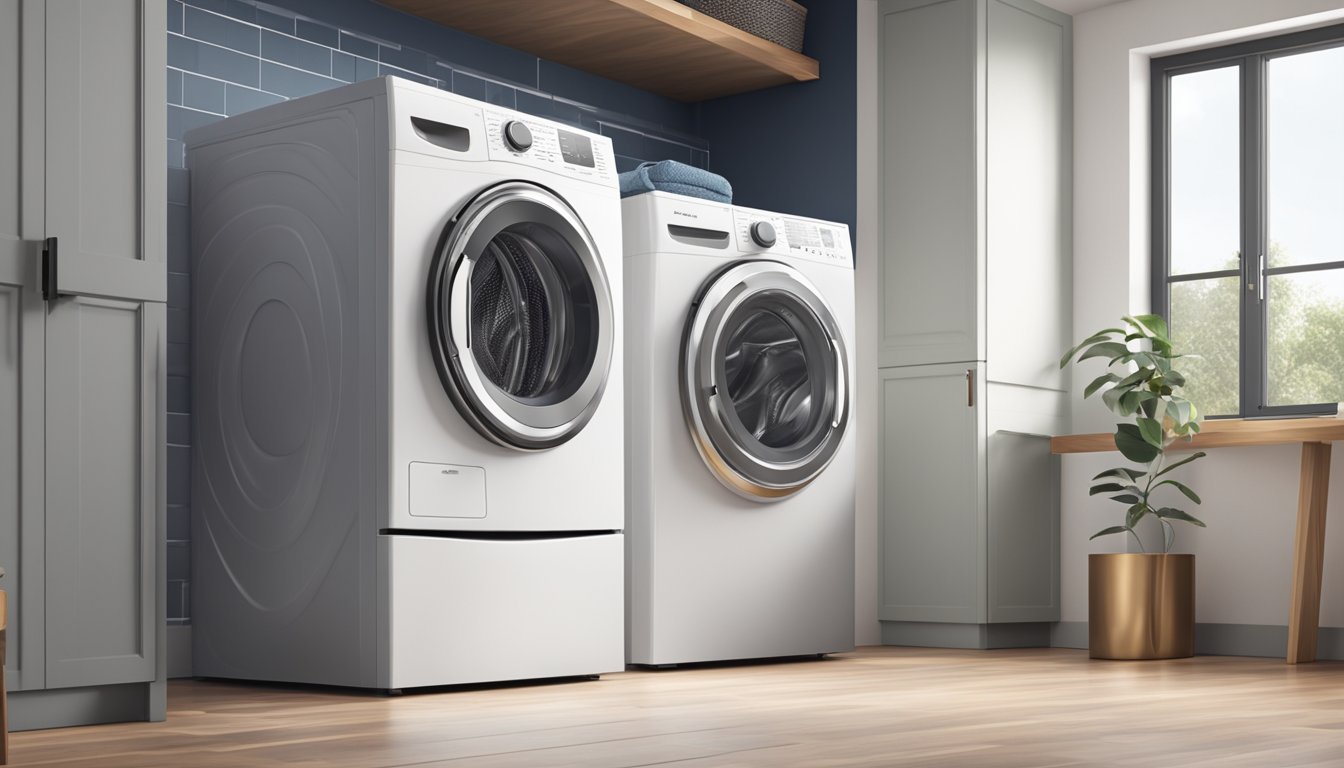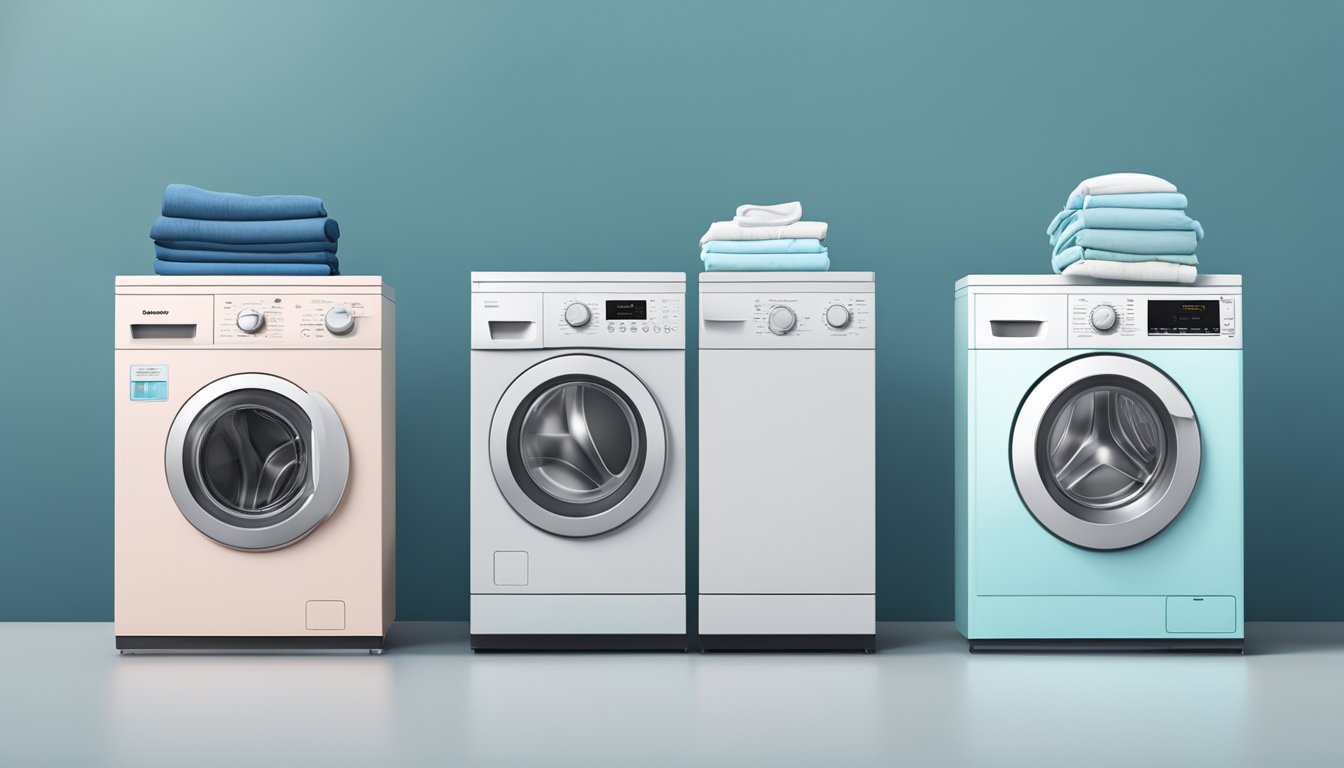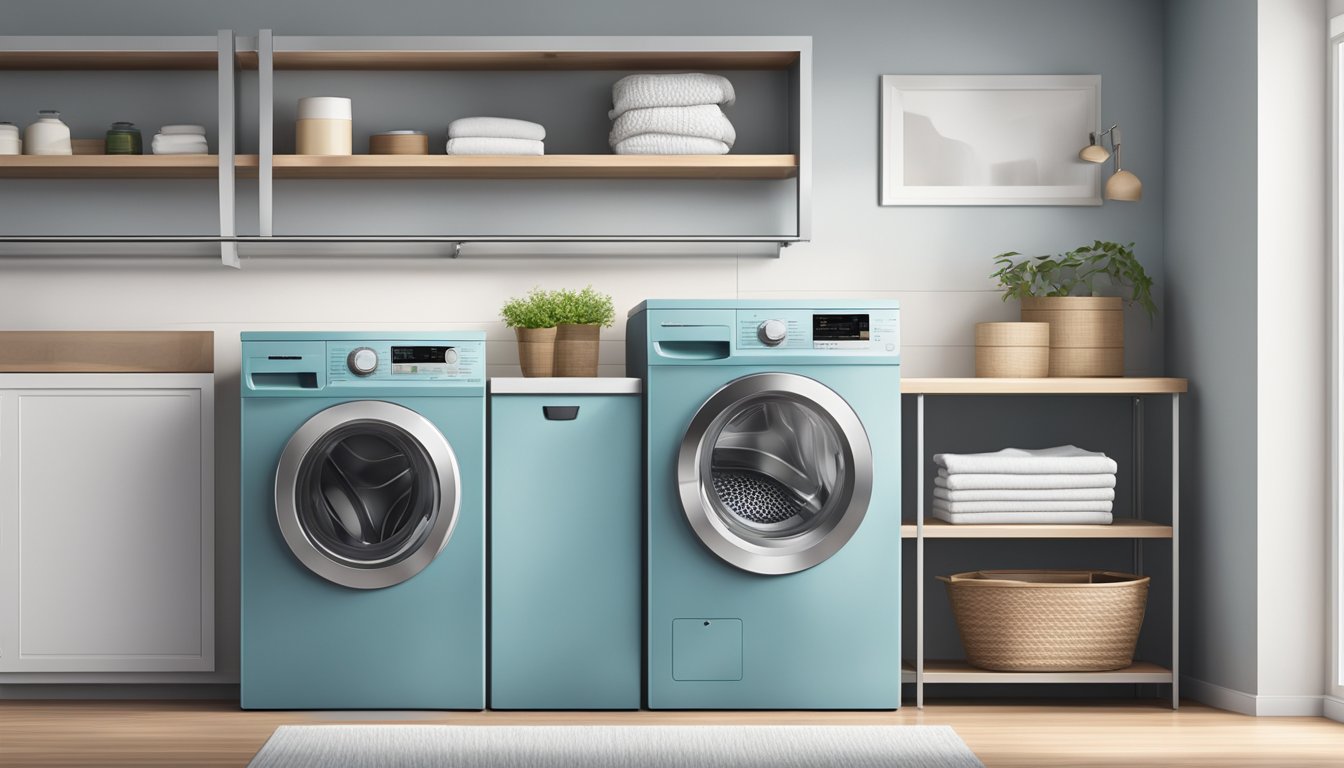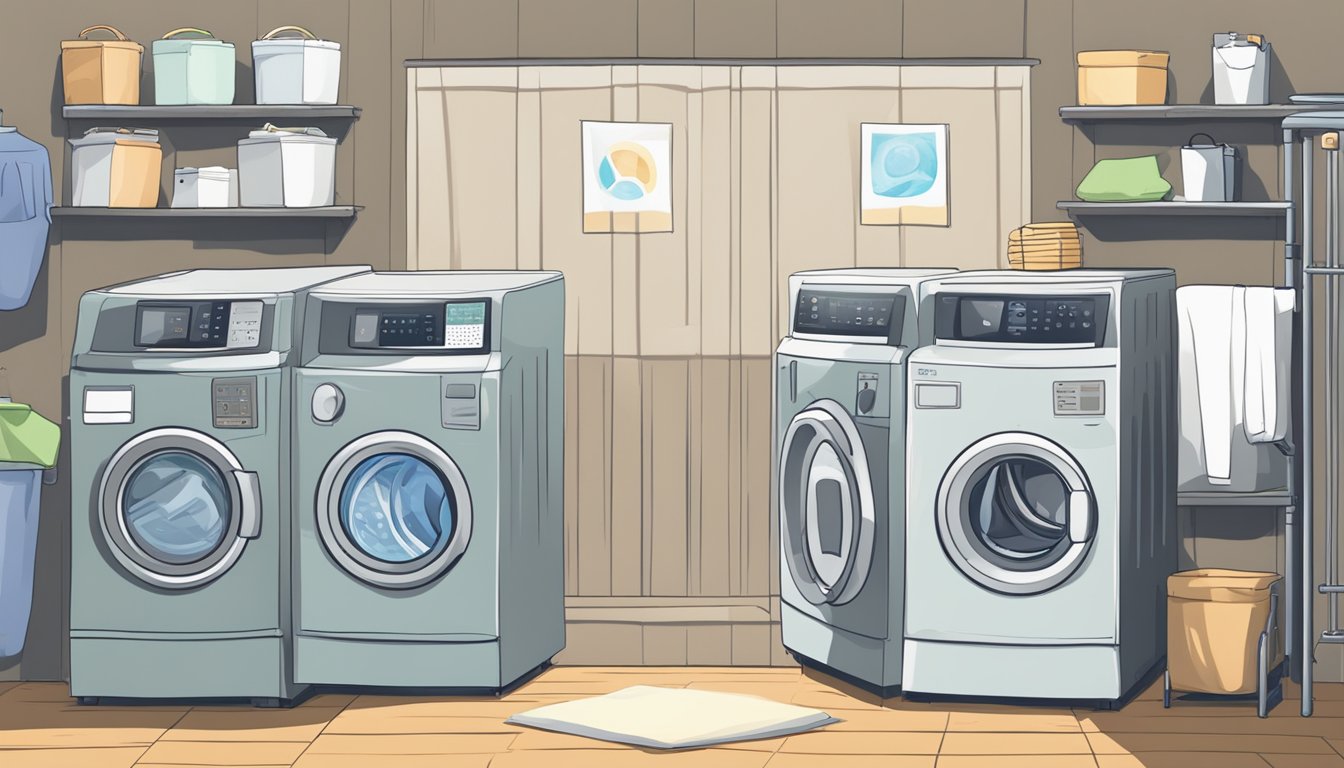Are you in the market for a new washing machine but unsure whether to choose a front load or top load model? It's a common question, and one that can have a significant impact on your laundry routine. In this article, we'll explore the pros and cons of both types of washing machines to help you make an informed decision.

When comparing front load and top load washing machines, there are several factors to consider. Front load washers are typically more energy-efficient and use less water, making them a popular choice for eco-conscious consumers. On the other hand, top load washers are often more affordable and easier to load and unload, particularly for those with mobility issues. By weighing up the advantages and disadvantages of each type of washing machine, you can determine which one is the best fit for your household's needs.
Key Takeaways
- When choosing between a front load and top load washing machine, consider factors such as energy efficiency, water usage, affordability, and ease of use.
- Front load washers are typically more energy-efficient and use less water, while top load washers are often more affordable and easier to load and unload.
- By weighing up the pros and cons of each type of washing machine, you can make an informed decision about which one is the best fit for your household's needs.
Comparing Front Load and Top Load Washing Machines

When it comes to choosing between a front load and top load washing machine, there are several factors to consider. In this section, we will compare the design, washing performance, convenience, cost implications, features, lifespan, environmental considerations, ergonomics, and aesthetics of these two types of washing machines.
Design and Space Utilisation
Front-load washing machines are designed to be stacked with a dryer, which makes them a great choice for small laundry rooms. They are also more compact than top-load washing machines, which means they take up less space. Top-load washing machines, on the other hand, are designed to be freestanding and take up more floor space.
Washing Performance and Efficiency
Front-load washing machines are generally considered to be better at cleaning clothes and removing tough stains than top-load washing machines. They are also more energy-efficient and use less water than top-load washing machines. However, top-load washing machines are better at cleaning clothes that are heavily soiled and require a lot of agitation.
Convenience and Maintenance
Front-load washing machines are easier to load and unload, as they don't have an agitator in the middle like top-load washing machines. They are also easier to maintain, as they don't have a rubber gasket that can develop mold and mildew. However, they can be difficult to reach the bottom of, which can make it hard to retrieve small items like socks. Top-load washing machines are easier to reach into and retrieve small items, but they require more maintenance, as the rubber gasket can develop mold and mildew.
Cost Implications and Value
Front-load washing machines are generally more expensive than top-load washing machines, but they are also more energy-efficient and can save you money in the long run on your energy bills. Top-load washing machines are cheaper, but they use more water and energy, which can make them more expensive to operate over time.
Features and Innovations
Both front-load and top-load washing machines come with a range of features and innovations, such as smart features, cycle time, spin speed, and wash progress indicators. However, front-load washing machines tend to have more features than top-load washing machines, such as pre-soak and faster cycles.
Lifespan and Reliability
Front-load washing machines tend to have a longer lifespan and be more reliable than top-load washing machines. However, they can also be more expensive to repair if something goes wrong. Top-load washing machines are generally less expensive to repair, but they may not last as long as front-load washing machines.
Environmental Considerations
Front-load washing machines are more environmentally friendly than top-load washing machines, as they use less water and energy. They are also more likely to be Energy Star certified, which means they meet strict energy efficiency guidelines. Top-load washing machines can still be energy-efficient, but they require more water and energy to operate.
Ergonomics and Accessibility
Front-load washing machines are easier to load and unload, as they don't have an agitator in the middle like top-load washing machines. They are also easier to reach into and retrieve small items. Top-load washing machines can be more difficult to load and unload, as you have to reach over the top of the machine.
Aesthetic and Appearances
Front-load washing machines are generally considered to be more stylish and modern-looking than top-load washing machines. They come in a range of colours and styles, so you can choose one that matches your decor. Top-load washing machines are more traditional-looking and come in fewer colours and styles.
Overall, when choosing between a front load and top load washing machine, it's important to consider your specific needs and preferences. Both types of washing machines have their strengths and weaknesses, so it's important to weigh the pros and cons before making a decision. If you're looking for a reliable and energy-efficient washing machine, a front-load washing machine may be the best choice for you. If you're on a budget and need a washing machine that can handle heavily soiled clothes, a top-load washing machine may be the better option. Regardless of which type of washing machine you choose, Megafurniture.sg has a wide range of options to choose from.
Making the Right Choice for Your Home

When it comes to choosing a washing machine, there are many factors to consider. You want to make sure you choose a machine that suits your needs and fits seamlessly into your home. Here are some important things to keep in mind when making your decision.
Assessing Your Laundry Habits
Before you make a decision, take some time to assess your laundry habits. Consider how often you do laundry, how many clothes you typically wash, and what types of clothes you have. If you have a large family or frequently wash bulky items like bedding, you may want to opt for a machine with a larger capacity. If you tend to wash smaller loads more frequently, a smaller machine may be more suitable.
Considering Capacity and Load Size
Capacity is an important factor to consider when choosing a washing machine. You want to make sure you choose a machine that can handle your laundry needs without wasting energy or water. A larger capacity machine may be more efficient for larger loads, but may not be necessary for smaller households. Consider the size of your laundry room or space where you want to install the machine.
Installation and Setup
Before you make your purchase, make sure you consider the installation and setup requirements. Some machines may require a specific type of installation or connection, such as electric or gas. You also want to make sure you have enough floor space for the machine and any necessary accessories.
Noise and Disturbance Factors
Noise and disturbance are important factors to consider, especially if your laundry room is near living spaces or bedrooms. Look for machines with quiet operation and minimal vibration. Some machines may also have features to reduce noise, such as soundproofing or anti-vibration technology.
Dealing with Potential Issues
While washing machines are generally reliable, it's important to be prepared for potential issues. Consider the cost and availability of repairs and maintenance. You may also want to look for machines with features to prevent common issues, such as mold or odor.
Looking to the Future: Smart Laundry
As technology continues to evolve, so do washing machines. Consider investing in a machine with smart features, such as remote control or monitoring, to make your laundry experience even more convenient. Research the latest innovations to find a machine that suits your needs and lifestyle.
By considering these important factors, you can make an informed decision and choose a washing machine that meets your needs and fits seamlessly into your home. Visit Megafurniture.sg, a leading Singapore ecommerce furniture store, for a wide selection of washing machines and other home appliances.
Frequently Asked Questions

What are the exhilarating advantages of using a front load washing machine?
Front load washing machines have several advantages over top load washing machines. They are more energy-efficient, use less water, and provide a better cleaning performance. Additionally, front load washers are gentler on your clothes as they do not have an agitator. They also have a larger capacity and can handle larger loads of laundry. With a front load washer, you can save money on your energy and water bills while enjoying a better washing experience.
Can you highlight the thrilling pros and cons of top load versus front load washers?
Top load washing machines are more affordable than front load washers. They are also easier to load and unload, and you don't have to bend down to put clothes in or take them out. However, top load washers use more water and energy than front load washers, and they are not as efficient at cleaning clothes. They also have a shorter lifespan than front load washers. Front load washers, on the other hand, are more expensive but offer better cleaning performance, are more energy-efficient, and have a larger capacity.
Why might some people passionately dislike front load washers?
Some people may dislike front load washers because they require more maintenance than top load washers. Front load washers can develop mold and mildew if not cleaned regularly, and they can be more challenging to repair. Additionally, front load washers require special detergent, which can be more expensive than regular detergent.
What's the expected lifespan difference between top load and front load washing machines, and which comes out on top?
Front load washing machines have a longer lifespan than top load washers. The average lifespan of a front load washer is 11 years, while the average lifespan of a top load washer is 8-10 years. This is because front load washers are more energy-efficient and use less water, which reduces wear and tear on the machine. Additionally, front load washers do not have an agitator, which can cause damage to clothes and the machine.
Are there any notable drawbacks to using a top load washing machine that one should be aware of?
One notable drawback of using a top load washing machine is that they use more water and energy than front load washers. This can lead to higher utility bills. Additionally, top load washers are not as efficient at cleaning clothes as front load washers. They also have a shorter lifespan than front load washers.
Could you explain the riveting differences in detergents for front load and top load washing machines?
Front load washing machines require a low-sudsing detergent, while top load washers require a high-sudsing detergent. This is because front load washers use less water, and too many suds can cause the machine to malfunction. High-sudsing detergents can also cause damage to front load washers. On the other hand, top load washers require a high-sudsing detergent to ensure that clothes are adequately cleaned. Using the wrong detergent in either type of washing machine can cause damage and reduce the lifespan of the machine.
Now that you have a better understanding of the differences between top load and front load washing machines, you can make an informed decision about which type of washer is right for you. If you're looking for a high-quality washing machine, be sure to check out Megafurniture.sg, a leading Singapore ecommerce furniture store that offers a wide range of washing machines at affordable prices.



